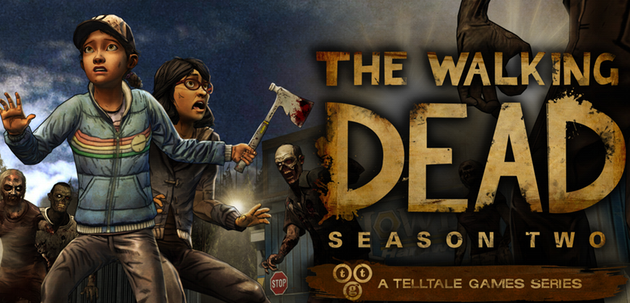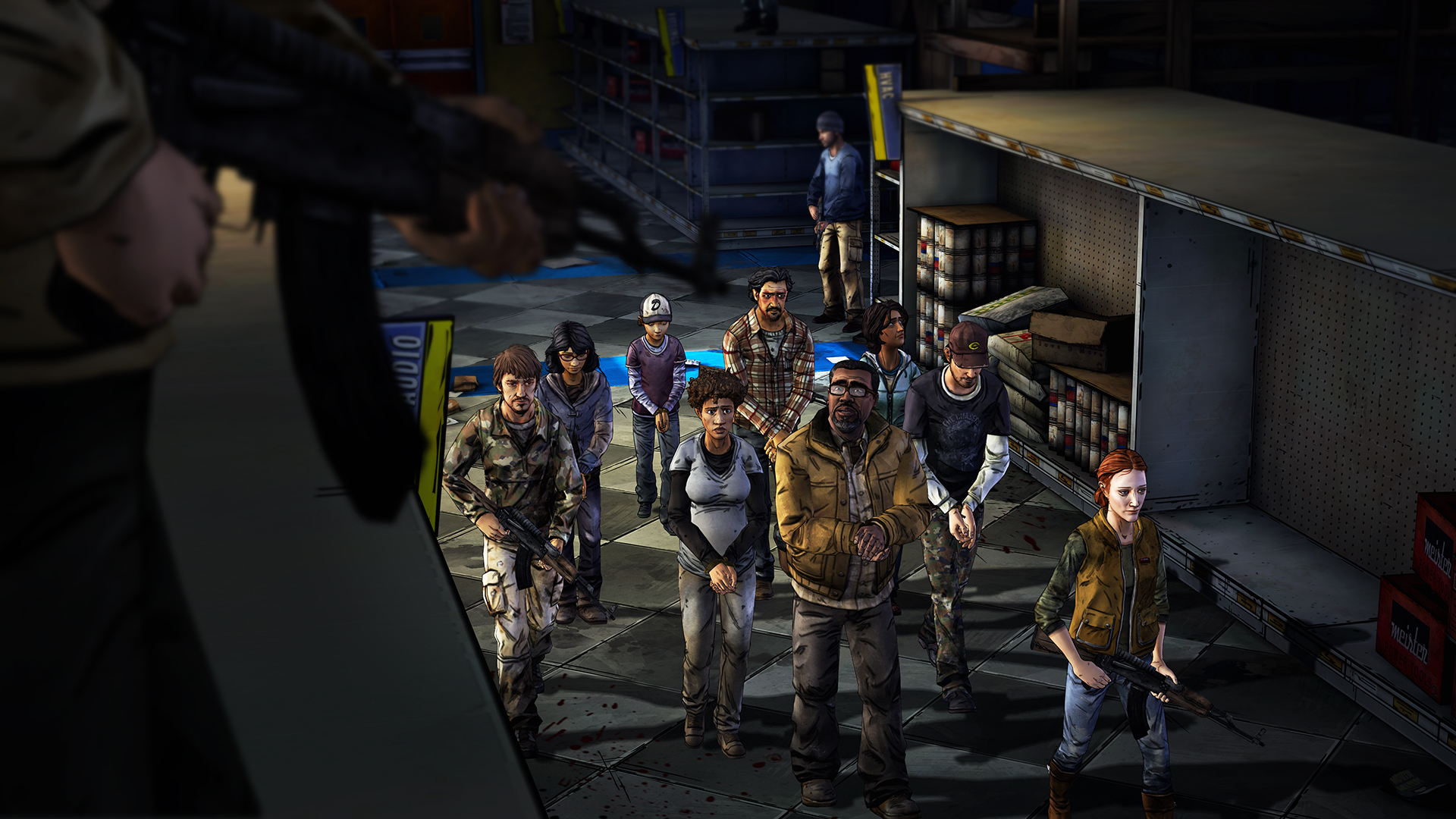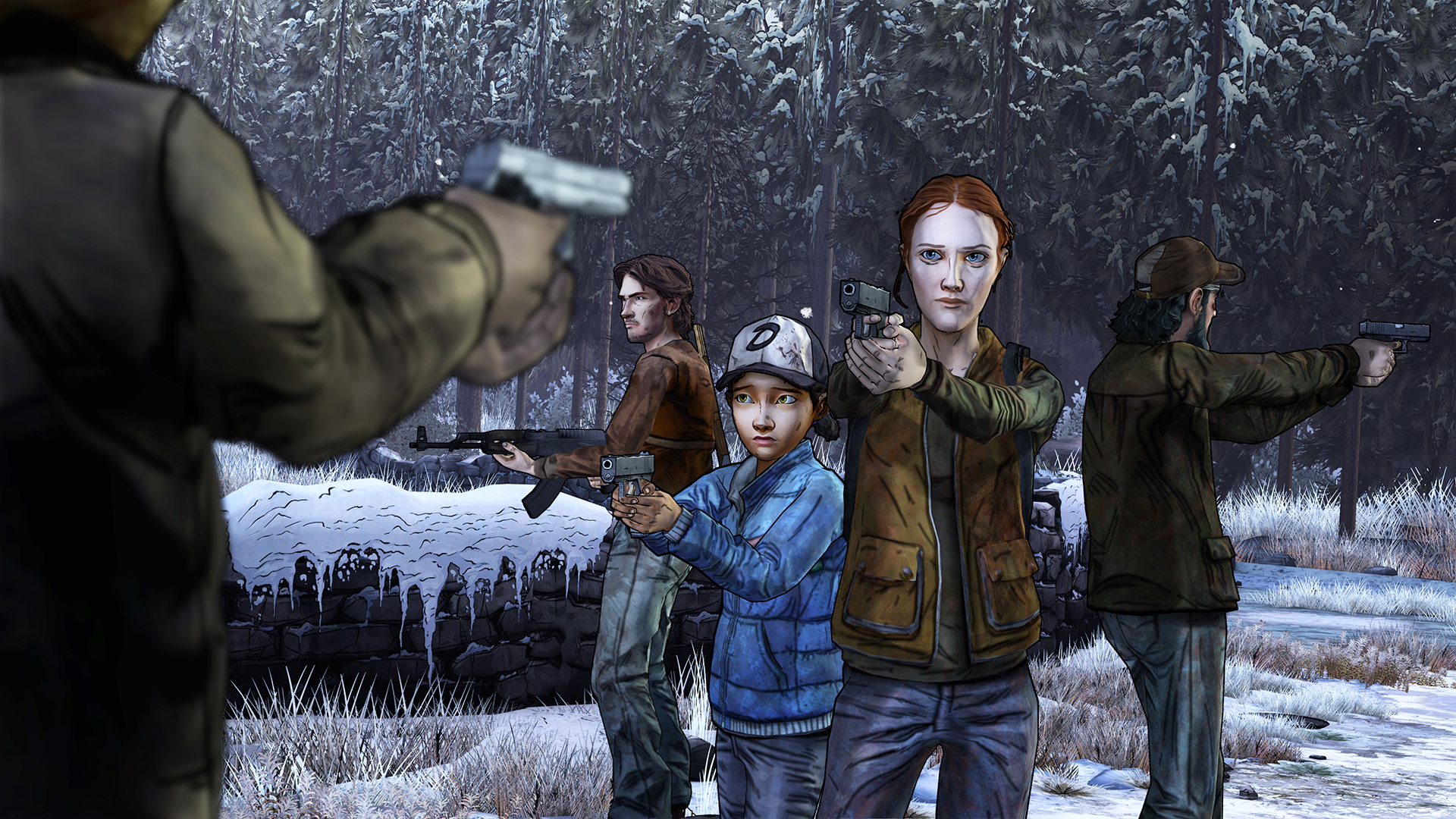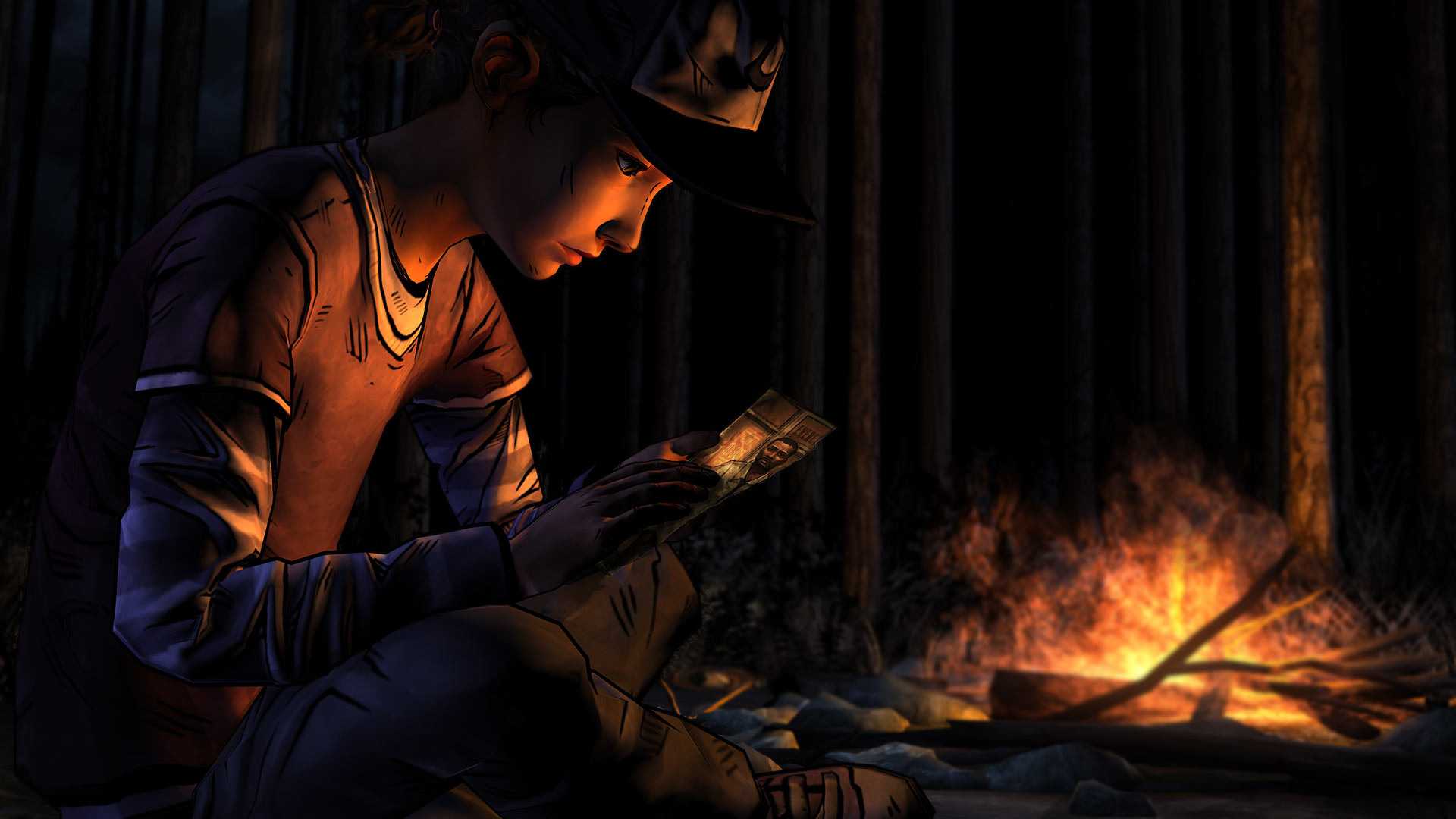Be warned this review does contain spoilers. It is recommended you play Season One and Two of Telltale’s The Walking Dead before viewing.
Clementine’s struggle is very real: she is a child in a horrifying and unforgiving world, and the last time we saw her, she was all alone. Telltale made a bold choice to have you take the reins of Clementine in their second season of The Walking Dead, but unfortunately it seems to cause more problems for the franchise then not. Season Two of Telltale’s The Walking Dead consistently faces pacing, dialogue, and characterization issues and most importantly gives the player the feeling that they don’t really have a choice, especially when they actually do.
The game begins with a pretty noticeable time jump of 16 months, giving the player a sense of tone change in Clementine. The problem is, we don’t actually get to see her grow from the innocent girl we nurtured as Lee in Season One; instead, we just jump into a much more cynical and downtrodden Clementine. Extenuating circumstances lead Clementine into a group of new survivors which is just wrought with trite character types, and from there the season mindlessly wonders from one event to the next, with no set goal in between. There are two places here where Clementine’s story really falls apart: its characters and its pacing.
The group you find yourself with is absurdly convenient, which I don’t think is the real problem. The issue is that, through the obvious roles many of the group members take – the friend, the mentor, the cynic, the one without hope, the doctor – all of them don’t actually develop much out of their roles, if at all. They serve them, almost to a T, and then die. Sometimes their removal from the story is as unceremonious as dying off screen.
At this point, I think it’s fair to compare this new group to the group from Season One of The Walking Dead, which was varied within its contrivances, allowing you to witness at least two different ends of the emotional spectrum for each character. Take Kenny, for example, who ends up surviving his fate from Season One, and returning in Season Two as an even more destroyed man than he was before. Depending on how you treated him and his family, the role you took with him, either as a friend or as an equally stubborn father-figure, affects what he thinks of you in Season One. You get to see him as the overprotective family man to the broken man with nothing left to live for. Yet between those two black and white areas, you see emotions manifest within him that compel you. He actually develops and changes as you interact with him, and my Kenny from Season One may be different than someone else’s.
In Season Two, to continue with Kenny as my example, he serves as a one-note character. He is given more trials to overcome, but instead of nuance, he just follows a set path of emotional self-destruction. What he does and how he acts ends the same way, much like in Walking Dead Season One, but in Season Two, it feels cheap, and ‘too-simple’. Kenny follows his path, and then it’s over. Whether you get to survive with him or not, he’ll only hit so many of the same notes before your relationship comes to its close.
Kenny isn’t the only victim of this either. Some characters, like the pregnant Rebecca, will actually swing from distrusting you to complete faith in Clementine to fit the needs of the story. This happens over the course of a few minutes and drives home how inconsistent the character progression is. The only character that actually fits a new mold is Luke, a fantastically rounded character who eventually is killed not for any real logical reason, but because the story demanded it. He needed to die in order for conflict to arise, and so he did.
I think the largest contributing issue to this poor character development is that your choices as Clementine, in a dialogue sense, don’t matter at all. Your relationships with the other characters don’t matter because they are all slaves to the story. They’ll leave or die, trust you or hate you, whenever the story demands it. You can be nice, and get some nice dialogue back, feel like you’re growing a bond with a character, and they could end up with a bullet in their head or just simply scream at you within minutes because the overarching narrative demands it. Arvo, a character you have the option of stealing from or not, plays a major role in the story. The problem is, he plays that role regardless of anything you said or did to him: your choice of robbing him or not very clearly doesn’t matter.
The irony of this is that when it comes time to shoot someone, to choose who lives or dies, or where to go in a dire situation, the choice usually falls on Clementine’s shoulders. The decisions of the game are yours to make when it’s convenient for the story, and after those decisions are made people will either love you or hate you. They’ll follow your decision, but the game will go back to treating you as a kid, ignoring your dialogue for the most part and chastising you when ‘the adults are talking’.
This does go a long way to convey the feeling of a frustrated child in a world ruled by adults, which is the clearest strength of Season Two. Playing Clementine proved to be a very unique experience, and though I wasn’t always happy with it, it delivers it’s point well enough. If the decision making wasn’t so inconsistent in that you make major decisions but really shouldn’t be, I think I’d be more on board with it. It also feels like a missed opportunity to show real character growth: have major decisions you make disregarded until you take matters into your own hands and prove to everyone that you should be making those decisions until everyone trusts and abides by your will. No, instead you’re just thrust into the leadership role when convenient, and end up guiding a group you have no logical reason to lead.
That’s the other major issue too: the leadership of the group. There is no clear leader and by far no clear destination. The entirety of Season Two is Clementine and Co. meandering from one scenario to the next for no reason whatsoever. Kenny is the only character seeking some larger destination, Wellington, which doesn’t even come into play until the Final Episode. Instead you just kind of show up places by skipping huge leaps of time because it was clearly the easier option.
Not only does the game make a huge leap in time right out the gate, but periodically throughout the series of episodes, overlooking sometimes weeks at a time where character development could be happening. No, this isn’t new for The Walking Dead, but with such a barely-friendly group of survivors, wouldn’t it make sense to spend some time actually hashing out their relationships? The result of this is botched pacing that just ruins any kind of urgency or goals that the player may have had.
On top of all that, Season Two often pretends that the decisions you made as Lee to Clementine at the very end of Season One matter when they don’t at all. ‘Keep your hair short’ or ‘stay away from cities’ are just empty words in the end, and Season Two retroactively makes that poignant moment that stood strong at the end of Lee’s journey virtually meaningless in Clementine’s.
Closing Comments:
Though these loosely tied episodes are not without their fair share of powerful and emotional scenes between characters new and old, and hold a very excellent middle chapter (mostly because it’s the only one with a clear goal) it all falls apart when you look at the bigger picture. Where references to Lee are supposed to surge emotions through you, they just bring up the disappointing fact that he isn’t alive anymore, and Clementine has been ruined by the people and world around her. Maybe this was the intention of the season, but instead of feeling thought-provoking and powerful, it feels cheap, disappointing, and misguided. Nothing in this season really makes sense, from Clementine’s constant and cynical grimace to everyone around her being more of a child that she is.









